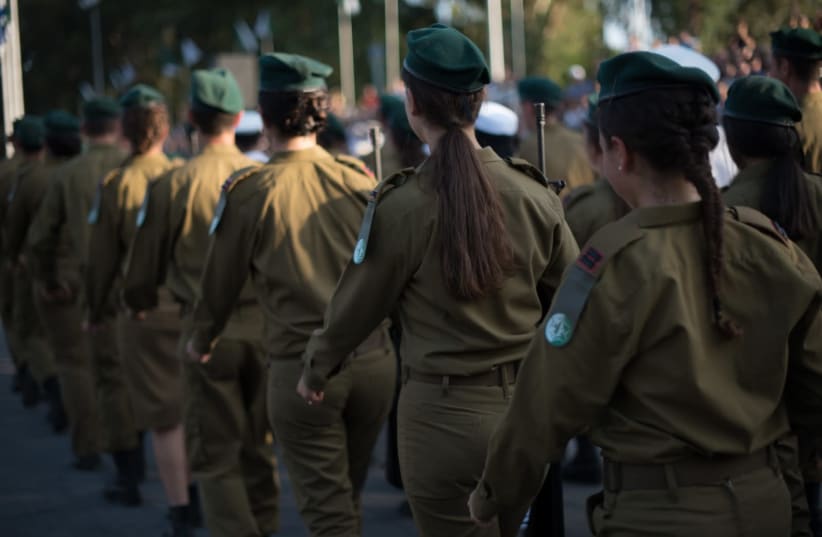It was December 2012 and 18-year-old “Y.” made aliyah from South Africa, with a large part of her dream being to make a substantial contribution to the IDF.
It would take more than four years for Lt. “Y.” (whose full name is classified) to make it into the IDF’s elite intelligence Unit 8200 (akin to the US National Security Agency) and five years before she was approved to become an intelligence officer.
In between, she had to leave the army for two years, and had various IDF human resources officials in her speed dial whom she called every day until she achieved her dreams of having a command role in IDF intelligence by sheer persistence and force of will.
“Some told me it couldn’t happen, but then it happened,” she told The Jerusalem Post on Sunday with an obvious tone of vindication, enthusiasm and a bit of wonder that she had overcome so many obstacles to be on the front lines of the intelligence battle.
How did her journey begin and what obstacles did she overcome along the way?
In 2012 when “Y.” came to Israel, she entered an army preparatory program to try to get some direction.
“I was interested in a career in intelligence. But since I was a new immigrant, it could be very hard to get the necessary security clearance,” she said.
“Y.” is understating when she says very hard, since at the beginning it was basically impossible.
Rather, she rechanneled her efforts into finding a position that had some overlap with intelligence operations, even if it was not strictly speaking an intelligence unit.
Eventually, she found that her best bet was to try to serve in the navy.
“Y.” says that serving in the navy already fulfilled some of her goals and that in any role, “being in the army was a dream come true.”
However, she always returned back to her original goal of serving in intelligence and becoming an officer.
Unfortunately, “Y.” notes that the navy is much smaller than the infantry forces and there are much fewer positions to be accepted into the officers’ course.
Whether because she was still new in Israel or because her scores in certain areas were not high enough for the tiny number of naval personnel who can become officers, it did not work out for her in that round.
So she spent two years serving in the navy at Rosh Hanikra near the Lebanese border, as well as at the naval base at Ashdod.
At the end of the two years, she left the army against her will – since she could not continue without being on a potential officers’ track.
“Y.” says she was devastated.
“I saw myself being in the army longer and didn’t feel like my dream should end after two years,” she says. “Immediately I tried searching other ways to enlist in the army. I would take any way to get in again. I was happy to start to do lots of reserve duty – anything to get back into the system.”
Later, “Y.” says she found a way to send her CV with a profile directly to the Human Resources Division, telling them “I would do anything. I also said what I would like to do, but I would work for any unit that invested in me. I would stick with them and do my best to convince them to keep me and then find my way... To me the army is the army and everything you do has meaning.”
She says that for two years she called the human resources office almost every day and for two years she was convinced she was getting nowhere.
“I imagined my application was just sitting on someone’s desk without anyone getting to it. But I was not ready to give up.”
Over those two years of “army-exile,” “Y.” worked for Birthright, becoming a project manager at the young age of 21.
Despite her success, she moved on to a security academy in Gush Etzion, feeling a need to reunite with the security culture of the army as well as avoiding getting absorbed in the “immigrant-outsider” culture of Birthright (even as she valued bringing people to Israel.)
It was not until summer 2017 that she finally got a call out of the blue from the Human Resources Division that there were commanders in intelligence who were interested in her.
Even at that point, she had to maneuver quite a bit until she found not only a commander who wanted her – there were multiple commanders like that – but also who had the funds to add her to his unit on a career officer track.
She had to pass another round of hard security clearances for six months, but finally entered on her potential career track in intelligence in December 2017.
Even then, it was not until July 2019 that she entered the officers’ course, where she met talented people from all kinds of background and religious perspectives.
But finally, “I made a name for myself. It was not an easy journey. I was a few years behind, but wanted to make it happen... I directed a major military exercise. They told me ‘we are so proud of you.’ My heart was overjoyed and everything had been worth it.”
